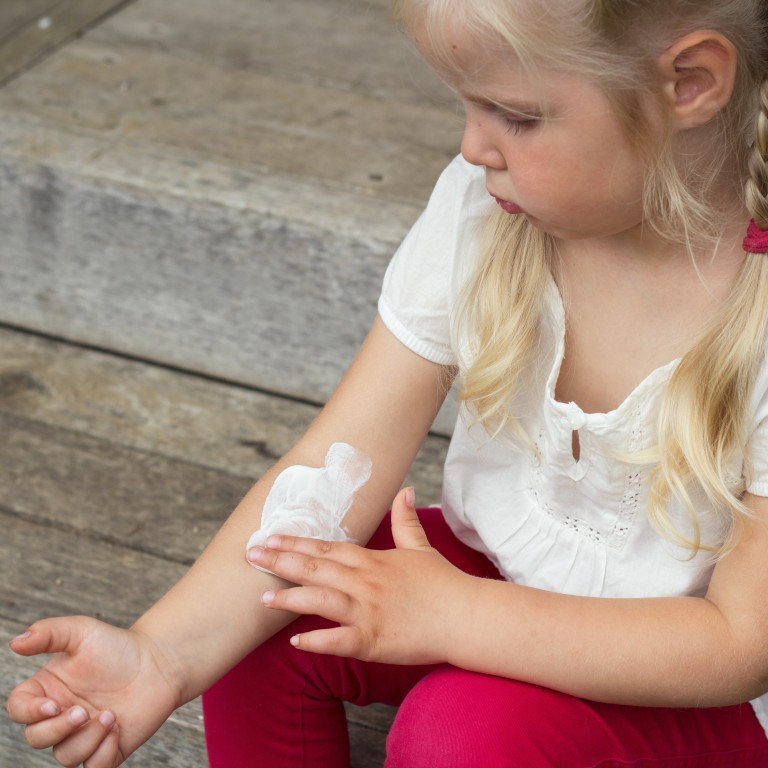
Why childhood eczema should be treated holistically
Atopic dermatitis, or childhood eczema, affects 20 per cent of children in developed countries, and the incidence is rising steeply. Rashes on the cheeks and body cause relentless itching and chaffing of skin.
Chaffed and itchy skin is prone to staphylococcal and fungal infections. Moisturising the area, and applying steroidal or antibiotic creams when needed, are standard treatments.
Having worked with eczema and atopic dermatitis for more than 17 years in my homeopathic practice, I recommend paying attention to the infant's skin early on. Watch out for acne-like eruptions or patches of dryness, as these usually precede dermatitis.
During homeopathic consultation, asking about sleep and bowel habits, and checking the skin for abnormalities, is part of the procedure when symptoms include stuffy nose, a rash, or behavioural issues.
This comprehensive approach offers a major advantage. As a student of science, you begin to see patterns and correlations that are present too often to be chance occurrences. A comprehensive approach to the skin disorder is advised, observing for coexisting stomach reflux, constipation or diarrhoea, and gas.
The homeopathic approach is aimed at reducing skin irritation and balancing the digestion
In homeopathy, we believe that the symptomatology is related. The homeopathic approach is aimed at reducing skin irritation and balancing the digestion. Comfortable children have better sleep and improved appetite, and this leads to healthy growth and development.
Breastfeeding is the best option for a baby. There is no better alternative to the immunity support that breast milk gives. But some mothers with atopic babies are convinced to give up feeding and switch to "hypo-allergenic" formulas.
In such cases, it is best to ensure the breast milk supply continues for a few months. That way, switching back to the established nursing schedule is feasible. Improving the pregnant and nursing mother's diet while supplementing her with the appropriate hypo-allergenic nutrients has shown good results.
Evidence suggests the use of probiotics during the late stages of pregnancy, and feeding, is preventative.
The difference is noticeable when one child is atopic, but the mother has taken probiotics and had a healthy diet during subsequent pregnancies. The younger siblings are less reactive.
Environmental allergens need to be taken into account. The high humidity in Hong Kong is conducive to mould and growth of house dust mites.
Many atopic children are sensitive to animal hair and feathers. Magic creams will only work for a while and are not without side effects.
Although many children outgrow the dermatitis, some sensitivities can persist. So recent scientific data that confirms the relationship between childhood eczema and allergies and developmental disorders is most welcome. Research is finally catching up with clinical observation.
Scientifically, atopic dermatitis is considered to be the first step in the "atopic march", leading to food allergy, allergic bronchitis and rhinitis.
Epidemiological evidence shows an incidence of asthma (50 per cent) and allergic rhinitis (75 per cent) in severe atopic dermatitis sufferers. Food sensitivities are seen in 15.7 per cent of the children by three years of age.
Recent studies from Germany and the US reveal that atopic children have a higher predisposition to attention issues such as ADHD, and mood disorders like depression.
The mind and body are connected. An overall approach to assessing the child's situation is of prime importance. I suggest looking into sleep patterns and physical discomfort in the learning environment caused by allergies before medicating the child for an attention issue. Disrupted sleep from allergy-related symptomatology cannot be ignored. After many years of nasal discomfort, snoring and disturbed sleep from itching or asthma attacks, it becomes routine.
Parents often don't realise that disturbed sleep could be affecting their child's attention in the daytime. Homeopathic remedies target the nasal discomfort and snoring. Simple natural methods improve sleep and immunity.
Attention and mood issues improve when the child is rested and free from discomfort. This is the optimal time for making an assessment of such issues.
Deficiency of filaggrin, a protein which moisturises skin, and defects in the filaggrin gene, have been documented in those with atopic dermatitis. Severe deficiency is linked to early and severe onset of the condition.
A possible abnormality in omega-3 metabolism has also been suggested. But omega-3 and other supplements must still be taken with caution.
So far, epidermal research has just managed to scrape the surface of the issue.
But there is definitely enough evidence to approach atopic disorders in a comprehensive manner, and this will help the child over the long term.
